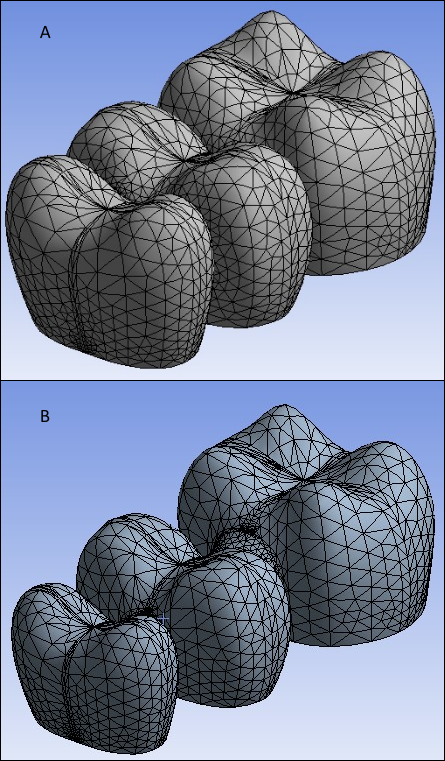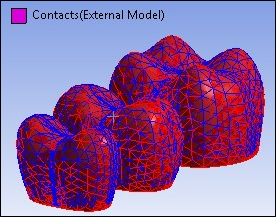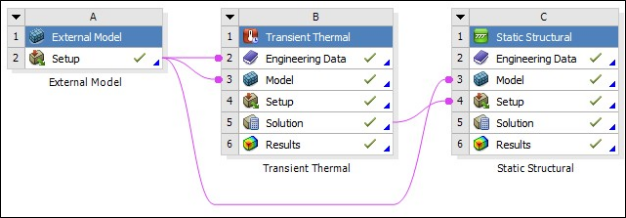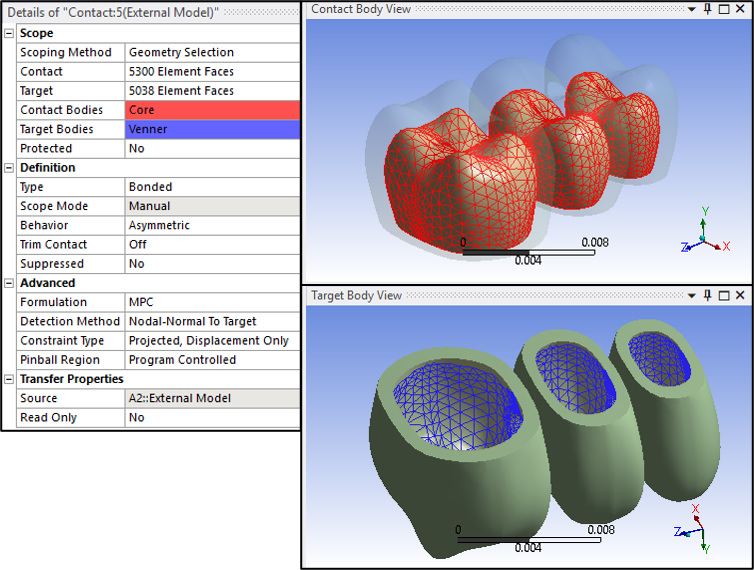The following modeling topics available:
For both the veneer and core meshes, thermal element SOLID291 is used for the transient thermal analysis, as shown below.
A 3-D surface-to-surface contact is used for creating the contact pair. The contact between veneer and core is meshed with CONTA174 and TARGE170 elements, as shown in the following figure.
The temperature profile obtained in the transient thermal analysis is used in a nonlinear structural analysis to determine the residual stress in the veneer. The temperature results are imported as body temperature loads in static structural analysis at different time steps.
The structural analysis requires the same mesh as that used for the thermal analysis. In this case, SOLID291 elements are used for the thermal analysis and SOLID187 elements are used for structural analysis .The FPD model contains 164,041 nodes. The model has 110,275 3-D 10-node tetrahedral structural solid elements (56,811 veneer elements and 53,464 core elements), and 10,568 3-D 8-node surface-to-surface contact elements.
Bonded surface-to-surface contact pairs define the contact between the veneer and the core. The settings used for contact modelling in the structural analysis are shown below.
Note: To edit imported contacts, right-click the contact to promote it and set Read Only to No under Transfer Properties.






